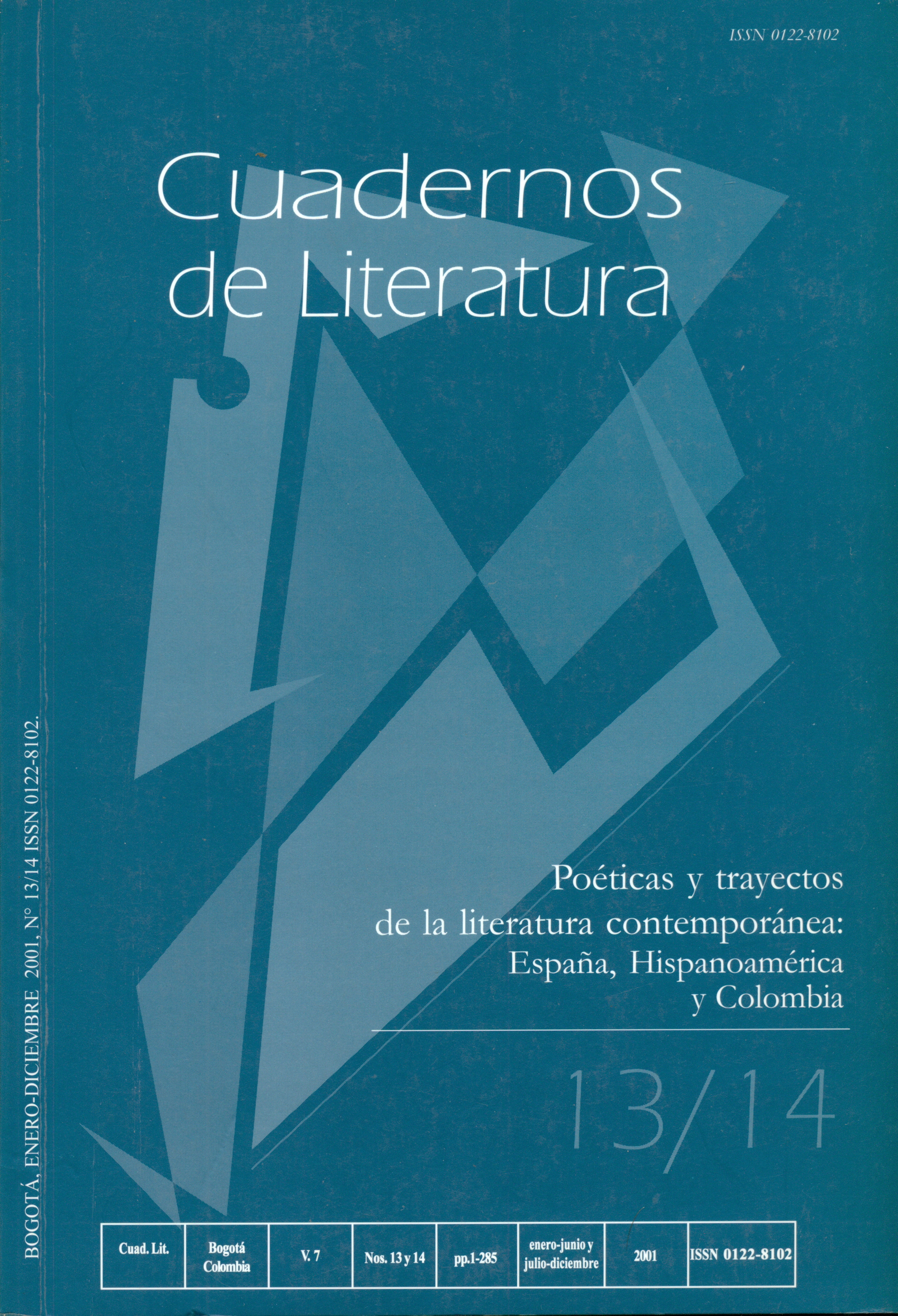Abstract
Sarah de Mojica: El escritor Noé Jitrik, de visita en Bogotá, ha accedido a conversar hoy, 10 de agosto de 2001, con nosotros sobre sus obras como novelista, crítico y profesor del Instituto Hispanoamericano en Buenos Aires. Su invitación responde a la iniciativa de la Universidad Nacional de Colombia de conocer más de cerca su dirección del proyecto de la Editorial Emecé para publicar una Historia crítica de la literatura argentina en doce volúmenes que incluye unos 250 colaboradores. Jitrik pertenece a una generación que en los años sesenta sacó al ensayo crítico del enclaustramiento universitario y lo introdujo en un universo de lectores más amplio. Ese momento crítico está relacionado con la introducción del psicoanálisis lacaniano por Oscar Massota en la revista Contacto. Coinciden estos años con el auge de la narrativa latinoamericana cuyo boom la convirtió en el género dominante. Ha dicho que se inició en la poesía y la sigue cultivando, pero que fue la crítica la que le abrió el camino a otras vertientes de la escritura. Considera sin embargo, que en lanovela empezó tarde. Su cuarta novela, Mares del Sur, fue publicada por Tusquets en 1997. Transcurre en los años de la dictadura militar de Videla,que Jitrik vivió en México (1974-1987). Este período que vivió fuera del país es reconstruido a través de la crónica de un hecho policial de la época.Cuadernos de Literatura is registered under a Creative Commons Attribution 4.0 International Public License. Thus, this work may be reproduced, distributed, and publicly shared in digital format, as long as the names of the authors and Pontificia Universidad Javeriana are acknowledged. Others are allowed to quote, adapt, transform, auto-archive, republish, and create based on this material, for any purpose (even commercial ones), provided the authorship is duly acknowledged, a link to the original work is provided, and it is specified if changes have been made. Pontificia Universidad Javeriana does not hold the rights of published works and the authors are solely responsible for the contents of their works; they keep the moral, intellectual, privacy, and publicity rights.
Approving the intervention of the work (review, copy-editing, translation, layout) and the following outreach, are granted through an use license and not through an assignment of rights. This means the journal and Pontificia Universidad Javeriana cannot be held responsible for any ethical malpractice by the authors. As a consequence of the protection granted by the use license, the journal is not required to publish recantations or modify information already published, unless the errata stems from the editorial management process. Publishing contents in this journal does not generate royalties for contributors.


